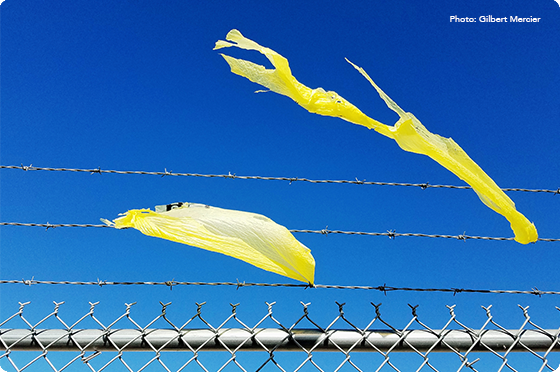
California recently passed an extended producer responsibility law, SB 54, that shifts the “plastic pollution burden” from consumers and local governments to producers in the plastics industry. The bill was signed by Governor Gavin Newsom on June 30, 2022, after three years of failed attempts to pass an extended producer responsibility legislation. Currently, the United States is the leading contributor of plastic trash in the world and recycles under 9% every year. While California is not the first state to pass legislation supporting plastic pollution prevention, supporters of SB 54 hope it will assist the Nation in regulating and recycling plastics.
Extended producer laws aim to mitigate the impact of waste materials by making plastic producers responsible for the entire life cycle of its product. SB 54, the Plastic Pollution Prevention and Packaging Producer Responsibility Act, creates a third-party producer responsibility organization (PRO) to run a collection and recycling program with State oversight. The Act mandates producers to reduce by 2032 single-use plastic packaging and food service products by 25%. The Act also requires, in the same timeframe, that no less than 65% of plastic covered products be recycled, with the rest being compostable. Registration, recordkeeping, and audits of both a PRO and producers will be required under this law. If a producer fails approval for participating in the producer responsibility plan or cannot comply with the Act individually, the Act will ban the producer from selling its products until meeting the necessary requirements.
In an attempt to help lessen already existing environmental and health harms caused by plastic pollution, the Act will establish the California Plastic Pollution Mitigation Fund, which would extend from 2027 through 2037. This fund would start at $500 million annually and would be financed by the PRO with an environmental mitigation surcharge. No less than 60% of the funds would benefit disadvantaged communities.
The new Act calls for a collaboration between CalRecycle and PROs, but some opponents of the Act argue that allowing the industry to have a role in the decision process is worrisome, as they do not believe the industry will ensure its products and strategies are taking the necessary steps towards achieving the Act’s goals. However, supporters of SB 54 argue that vested industry buy-in is crucial to the success of the program, and industry buy-in comes with giving the industry some liberty in its choices regarding strategies.
Statements from several organizations in the plastic industry, have stated that despite supporting the goals of SB 54, the law is not perfect. Other opponents have voiced apprehension over possible additional costs to consumers who currently buy products containing plastic. California is one of the leaders regulating plastics, and this historic Act will help regulate the entire life cycle of plastic materials.












